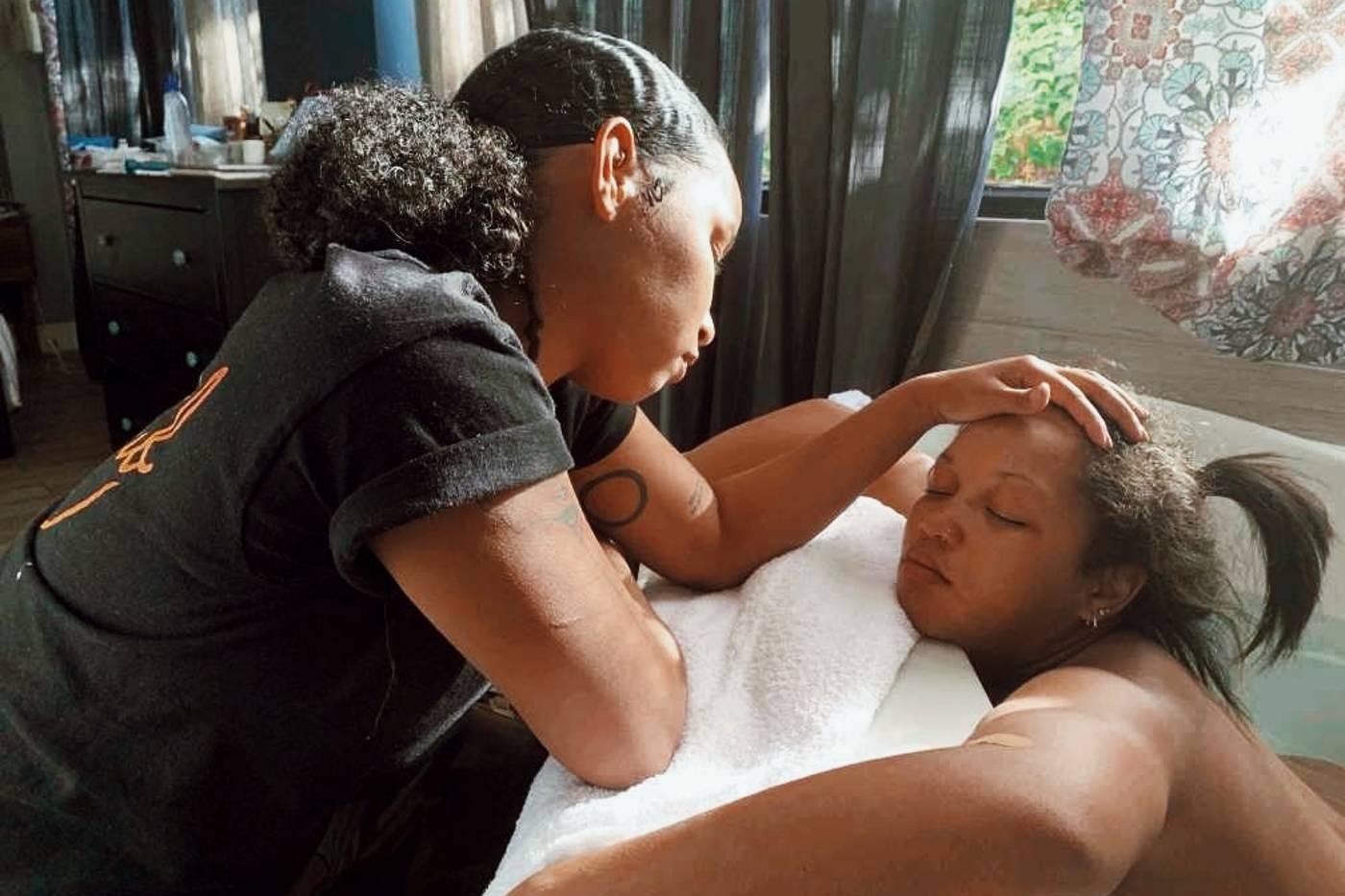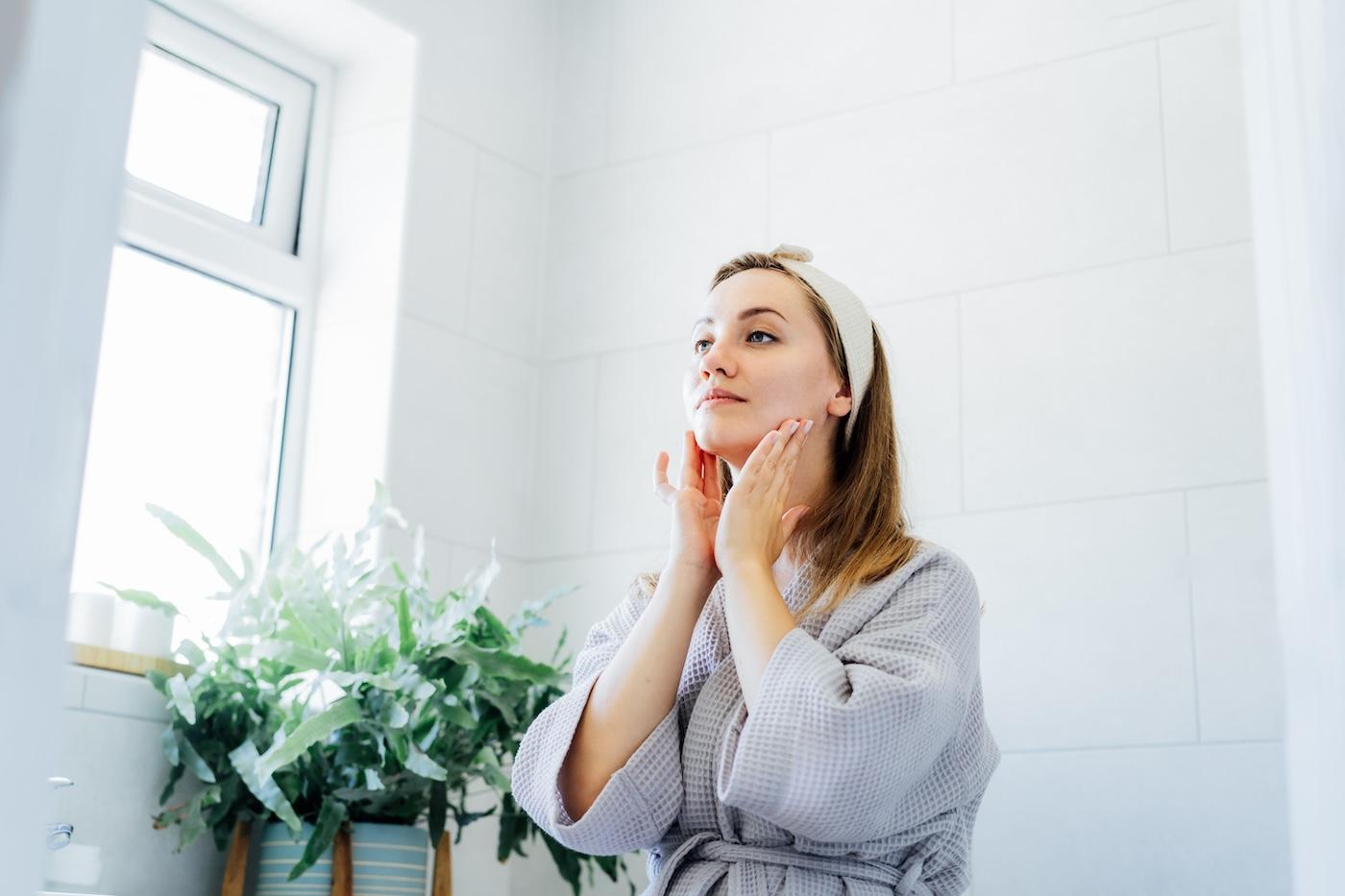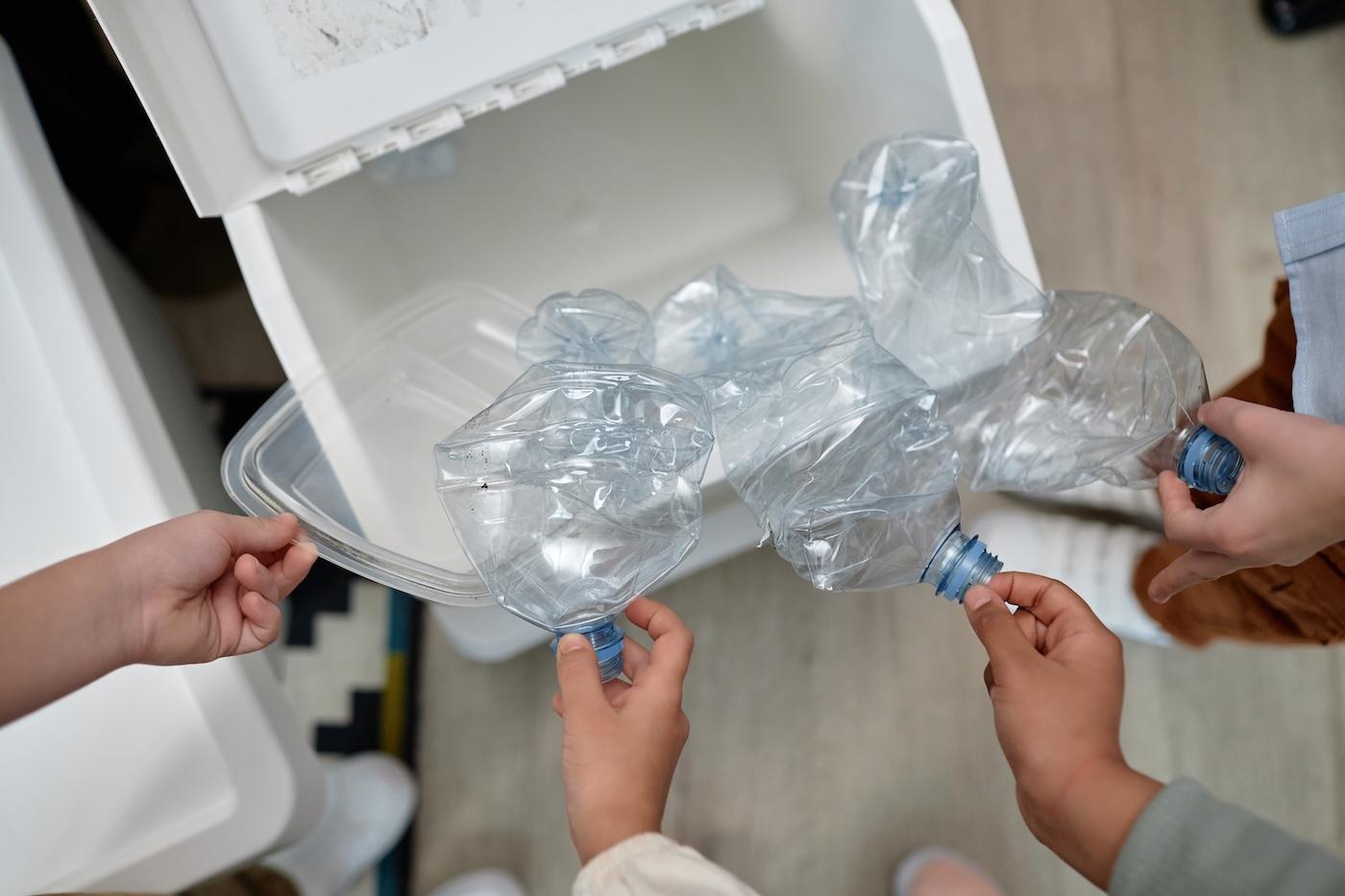PARENTS
Why Do We Need Black Maternal Health Week?
To answer that question, we asked someone working to support Black maternal health: Arielle Saturné.

Written by
Happiest Baby Staff

Content warning: This post mentions maternal mortality.
Here in America, Black mamas are nearly three times more likely to die during childbirth than white moms. And those disparities persist across all education levels and increase with maternal age. The worst part? Most pregnancy-related deaths are considered preventable. And it’s not just Black mamas who are suffering. Infants born to moms of color are at higher risk for death compared to those born to white folks, too, according to a 2020 report from the Kaiser Family Foundation. It’s no wonder the mothers of Black Mamas Matter Alliance founded Black Maternal Health Week (BMHW) six years ago. Change is needed—and the purpose of BMHW is to make that change happen through awareness, activism, and community-building.
In honor of this year’s BMHW, Happiest Baby is hoping to do our part in raising awareness. To do that, we’re passing the mic to someone who’s working hard to support Black maternal health: Arielle Saturné, doula and founder of The Auntie Doula in Los Angeles.
Happiest Baby: Before starting your doula journey, were you aware of Black maternal health disparities?Arielle Saturné: Honestly, I was not informed about Black maternal health disparities at all. When I learned about how we’re nearly three times more likely to die during childbirth in comparison to our white counterparts, I was shocked…though not surprised given how many other disparities our community faces. Beyond that, I think the most insidious fact I learned is that the more educated a Black woman is, the higher her chances are of dying during childbirth. It just goes to show that the inherent biases that happen within the medical field are far more detrimental to us than meets the eye. [According to the CDC, Black mamas with a college degree are 5.2 times more likely to die in childbirth than white moms with the same education.]
HB: Do maternal health disparities among Black mamas draw you to your work? AS: I absolutely feel a strong pull to be a part of the solution when it comes to Black maternal health. We know that when a Black birthing person has a Black care team, their outcomes are, in fact, better. [Research also shows that when Black doctors care for Black newborns, their mortality rate is cut in half.] All Black people deserve to have a care team that truly sees them, hears them, and supports them. It’s a huge part of my calling. Not only is it a spiritual responsibility of mine, but also a moral one. If we don’t protect each other, who else will?
HB: Trust Your Gut Birthing concentrates on providing information and services to marginalized communities. Why is that so important to you? AS: The more information people have about their rights, the more body autonomy they’re allowed to exercise, the better they feel about their birth stories. Beyond that, I believe less harm is inflicted upon birthing people within the medical field when they’re fully informed. People can’t be fully informed if they don’t have all of the information.
HB: Research shows that people of color face increased barriers to care, including a lack of access to culturally appropriate care. What does culturally appropriate care look like? AS: Culturally appropriate care takes many faces. For one, I think for someone to be culturally competent—and be able to provide appropriate care—a shared lived experience is imperative. How can I fully support you if I don’t understand the kinds of stressors you face and what kind of impact that may have on you during pregnancy? For instance, a Black mama doesn’t need to explain why they’re afraid to give birth in a hospital to a Black doula. We understand their fears. We are reflections of each other and, experientially, know where that core fear comes from.
HB: Maternal mortality rates in America are far higher than those in similarly wealthy countries—and people of color are at the most risk. How can doulas like yourself help turn those stats around? AS: [Black mamas] die at higher rates, in part, because they’re not listened to. Doulas always listen. We trust our clients and what they tell us about their experiences. My company is called Trust Your Gut Birthing for a reason! Only you can tell me what it is you are feeling inside of your body. And if you’re telling me ‘Arie, something isn’t right,’ I will fully trust that something isn’t right, and we will take all the necessary steps to find out what it is and tend to it. At the same time, doulas like myself protect the birthing space at all costs. So if that means I have to assert myself in ways that a provider may not like then so be it. I don’t do this work to be liked, I do what I can to make sure that my clients don’t endure unnecessary birth trauma and that they are protected.
HB: Doulas can't turn Black maternal mortality rates around alone. What do you think can move the needle the most on this issue?AS: I truly believe that what moves the needle most on this issue is having a Black care team. Even if you don’t have access to all the resources that other communities do, having a Black care team can help you find the support you need—in the ways you deserve. What we need moving forward is birth equity—we need to allocate resources equitably in order to arrive at better birth outcomes.
HB: Why do we need Black Maternal Health Week?AS: We need Black Maternal Health Week because it’s important for all of us to be educated about the things that plague us. [Black mamas] have reason not to trust providers given our history and the medical malpractice that have been inflicted onto Black bodies—but it doesn’t stop there. We need to constantly be working to find solutions to healing this trauma within our community. If there are more of us in this field, we will have less unnecessary pregnancy-related deaths occur. Ultimately, this is a solvable issue and Black Maternal Health Week helps us in this pursuit.
HB: How can we all do our part in improving Black maternal health? AS: We all have different parts to play. Non-Black providers need to know where their biases lie and [that knowledge] needs to stay in the forefront of their minds. It’s important [for healthcare providers] to know where they’re ill-equipped and then know when to outsource when they know there are more qualified people who can provide better services. It hurts no one to say “I don’t know. Let me find out who can best support you in this.” But not doing this can have irrevocable consequences—that goes for all of us! Also, think about supporting Black birthing parents by thinking outside of the box. Perhaps instead of buying them baby clothes, consider monthly prenatal yoga classes, or prenatal massages, or access to a birth or postpartum doula! A postpartum doula can stay for overnights and mom can get the rest she needs to recover from her birth. We can show up for parents in the ways that will truly help them.
![[object Object]](https://cdn.sanity.io/images/301lhh0a/production/28d13a31065623cb0fa51db16655a25f8c01cd6e-171x240.jpg?w=384&auto=format&q=75&fit=max)
Arielle Saturné is a full-spectrum doula and founder of The Auntie Doula in Los Angeles. She provides a nonjudgmental pregnancy and birthing experience for all birthing folks, including Black, queer, and trans individuals. She first became interested in the birthing process when her “sister-in-love” was pregnant with her nephew. “I felt so fulfilled whenever I’d explain to my partner a new fact I learned about pregnancy,” says Arielle. But it wasn’t until she witnessed her niece’s birth later on that Arielle decided that being a doula was her calling.
Disclaimer: The information on our site is NOT medical advice for any specific person or condition. It is only meant as general information. If you have any medical questions and concerns about your child or yourself, please contact your health provider.
SHARE THIS ARTICLE
MOST LOVED
Sleepytime Sidekicks












